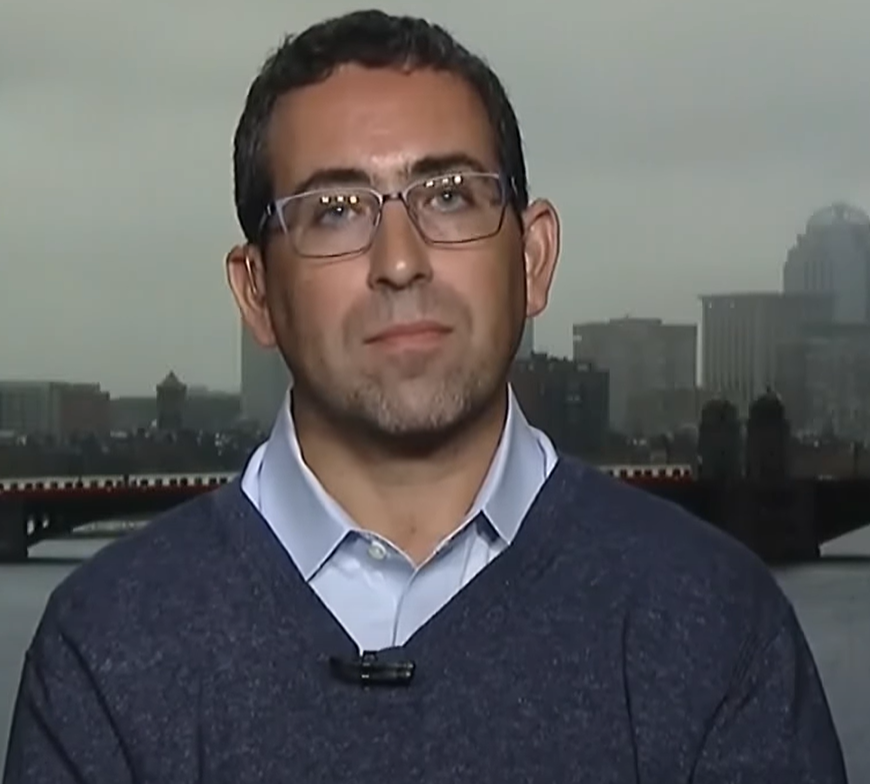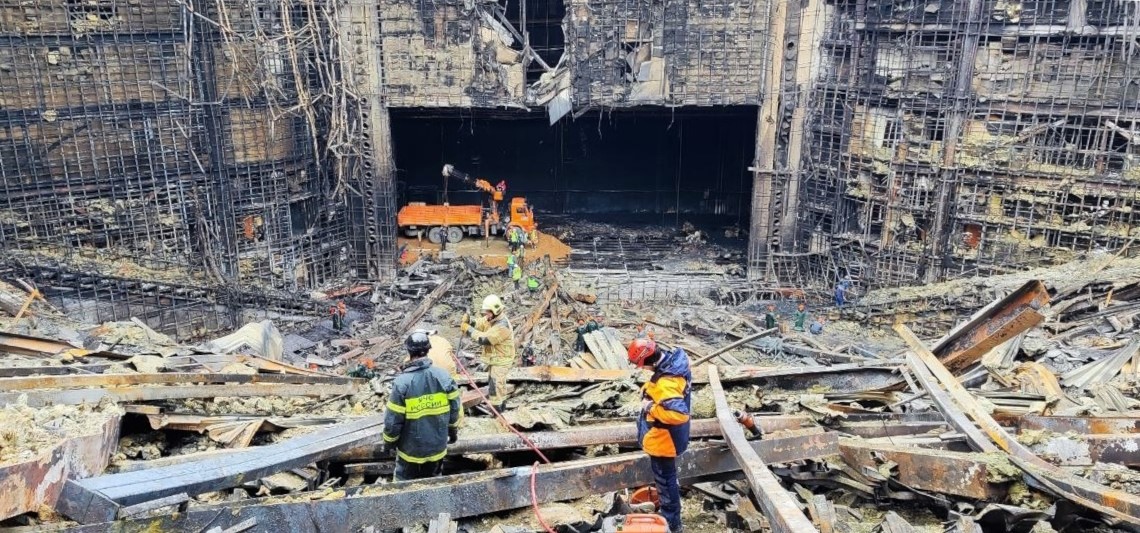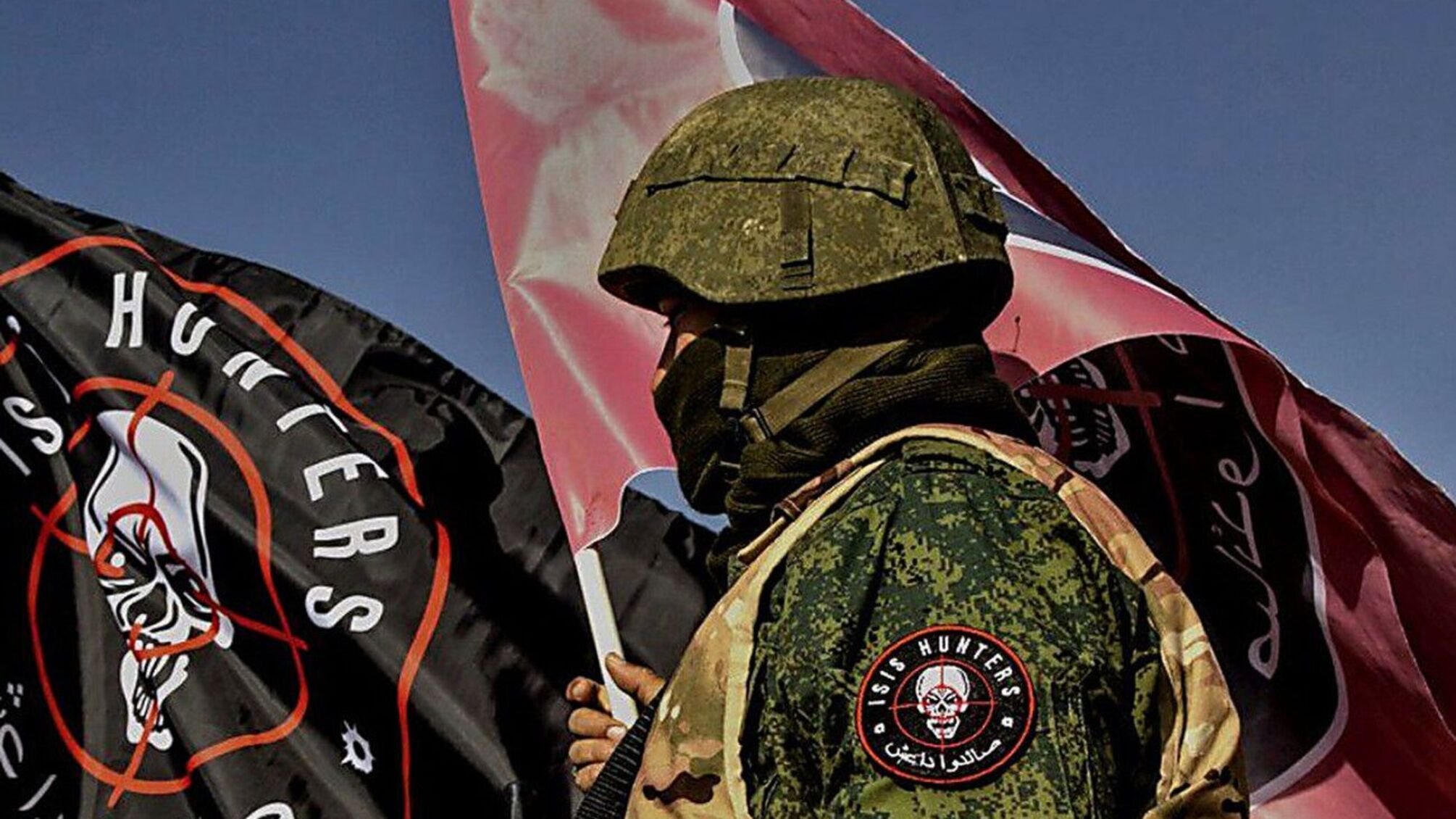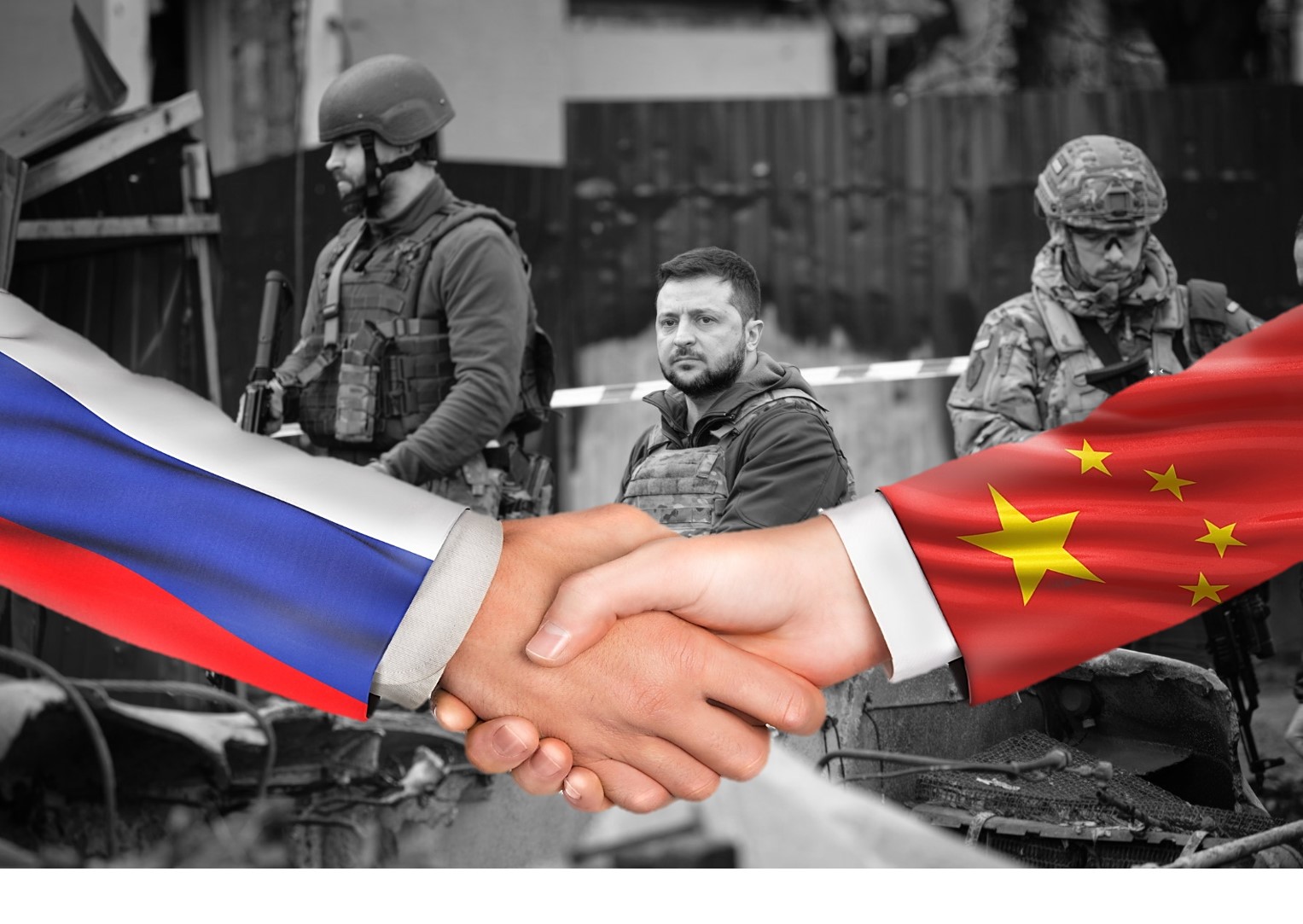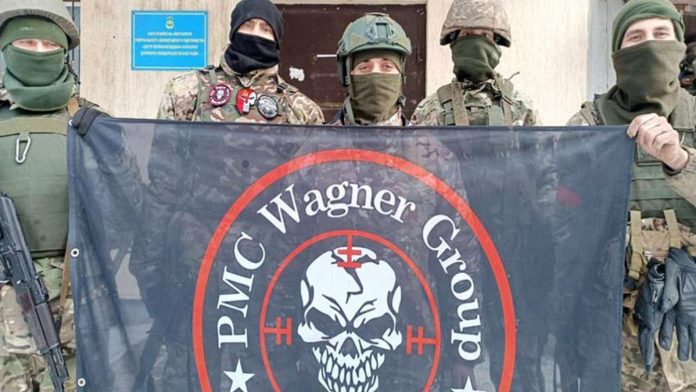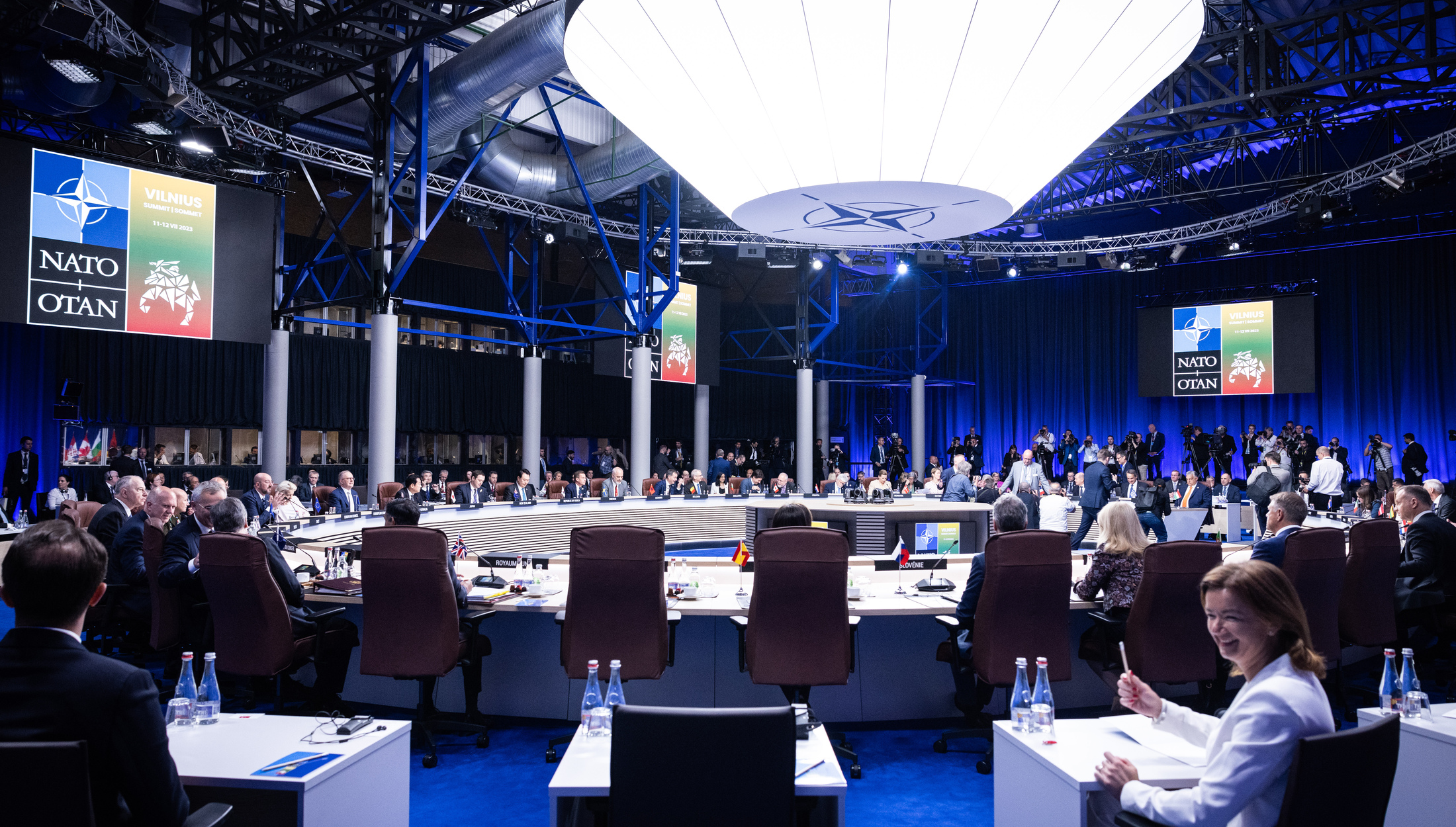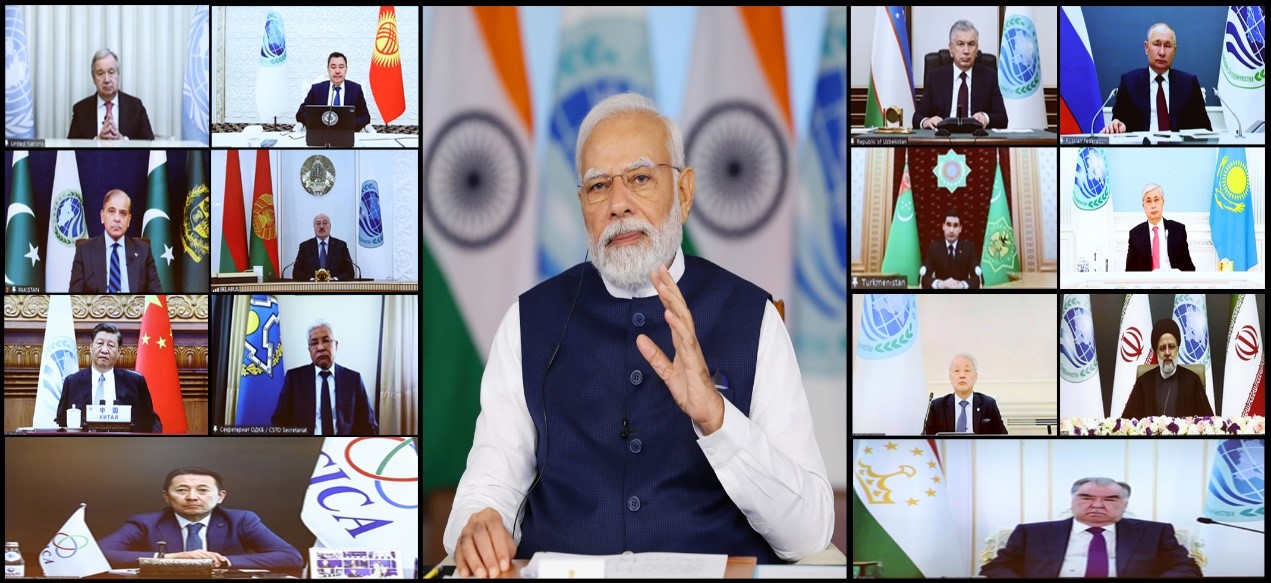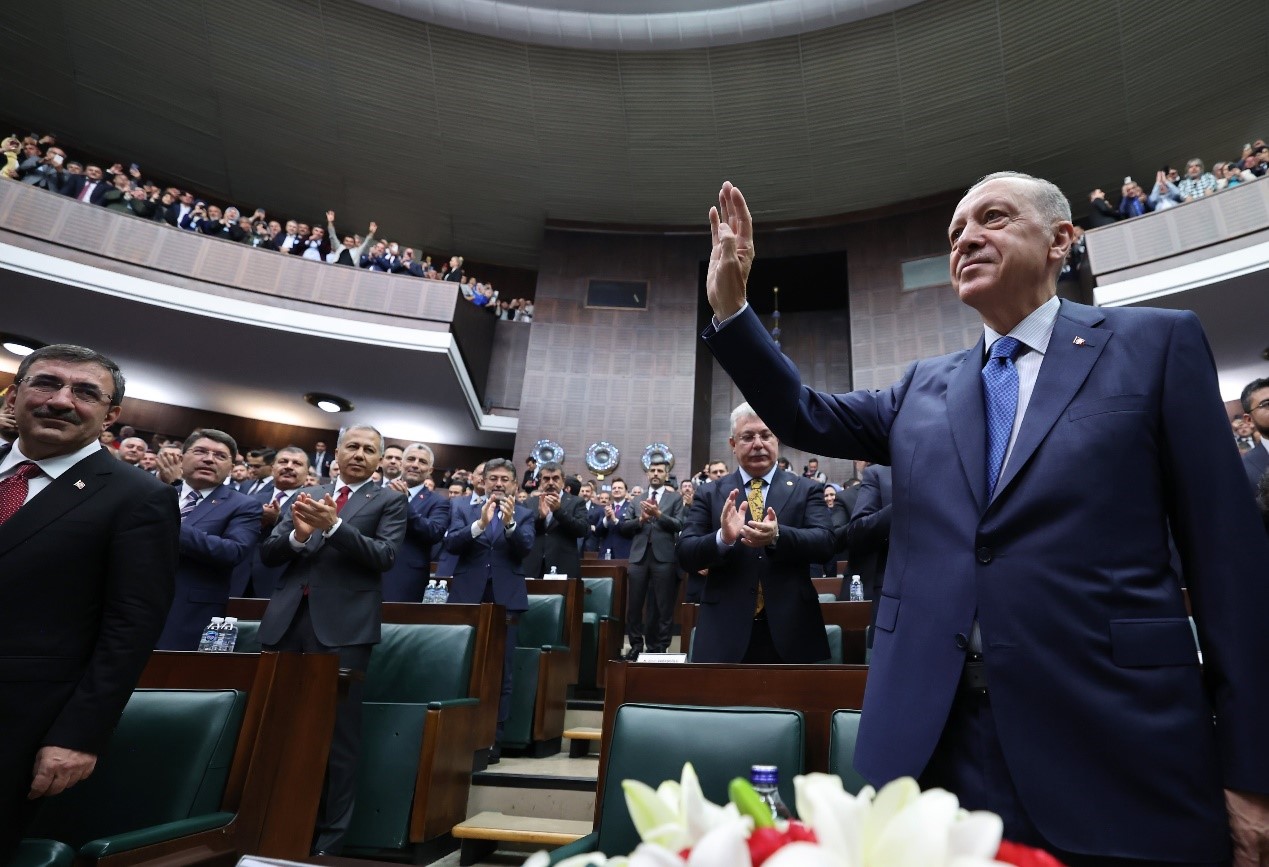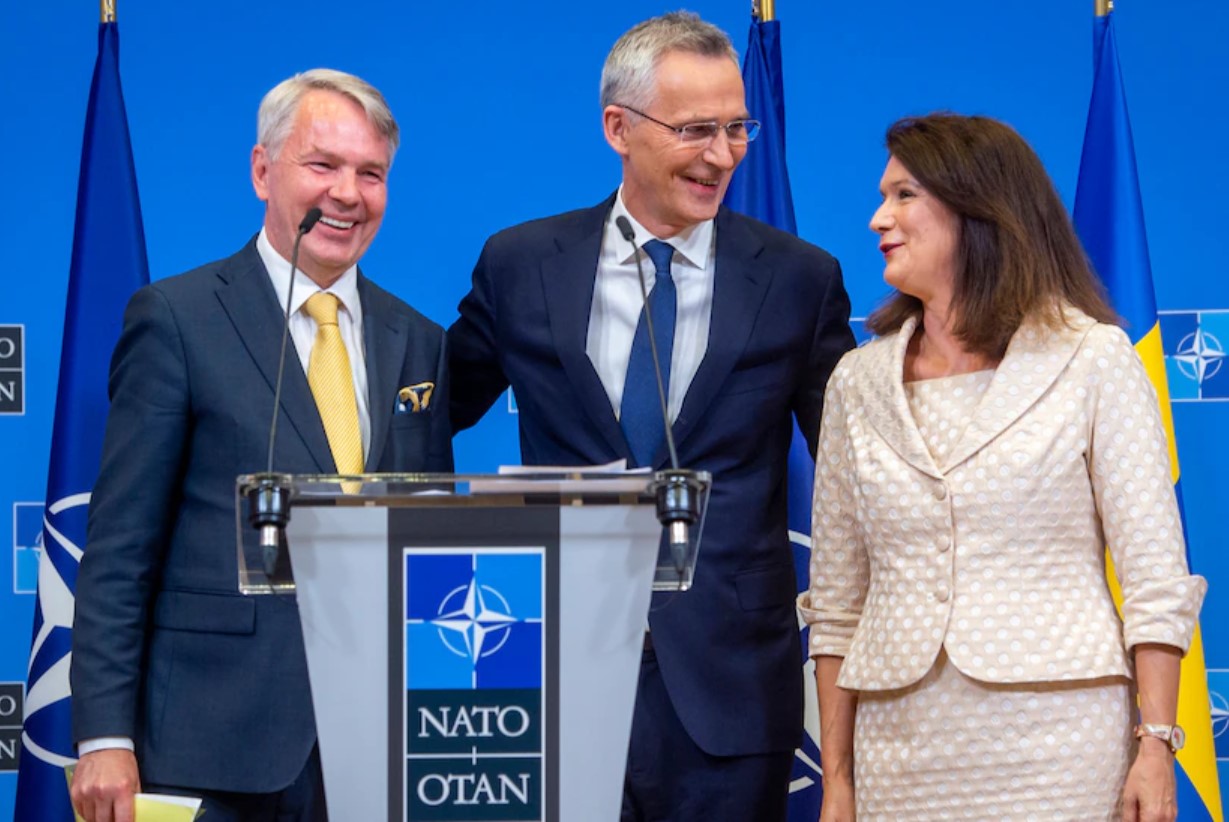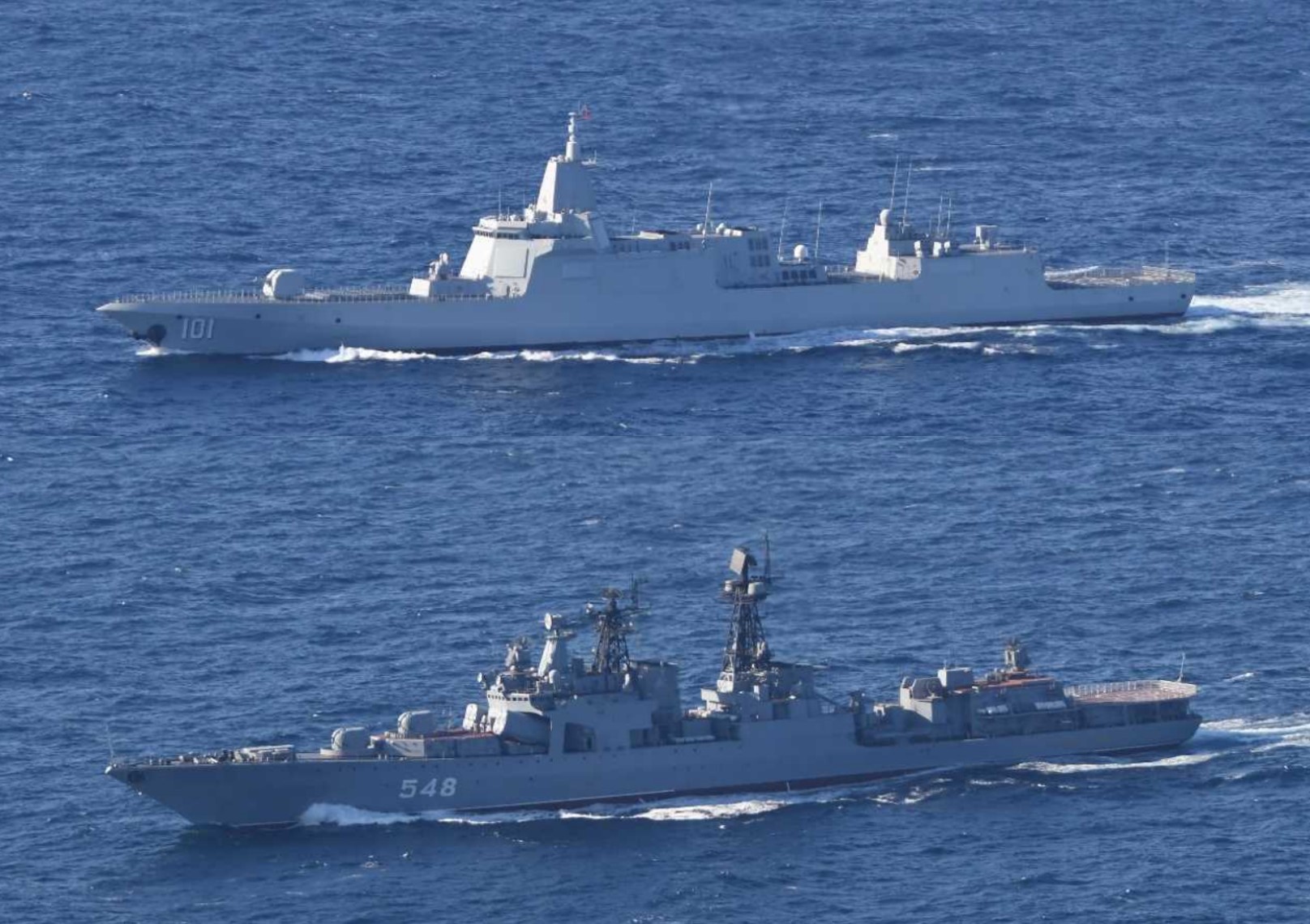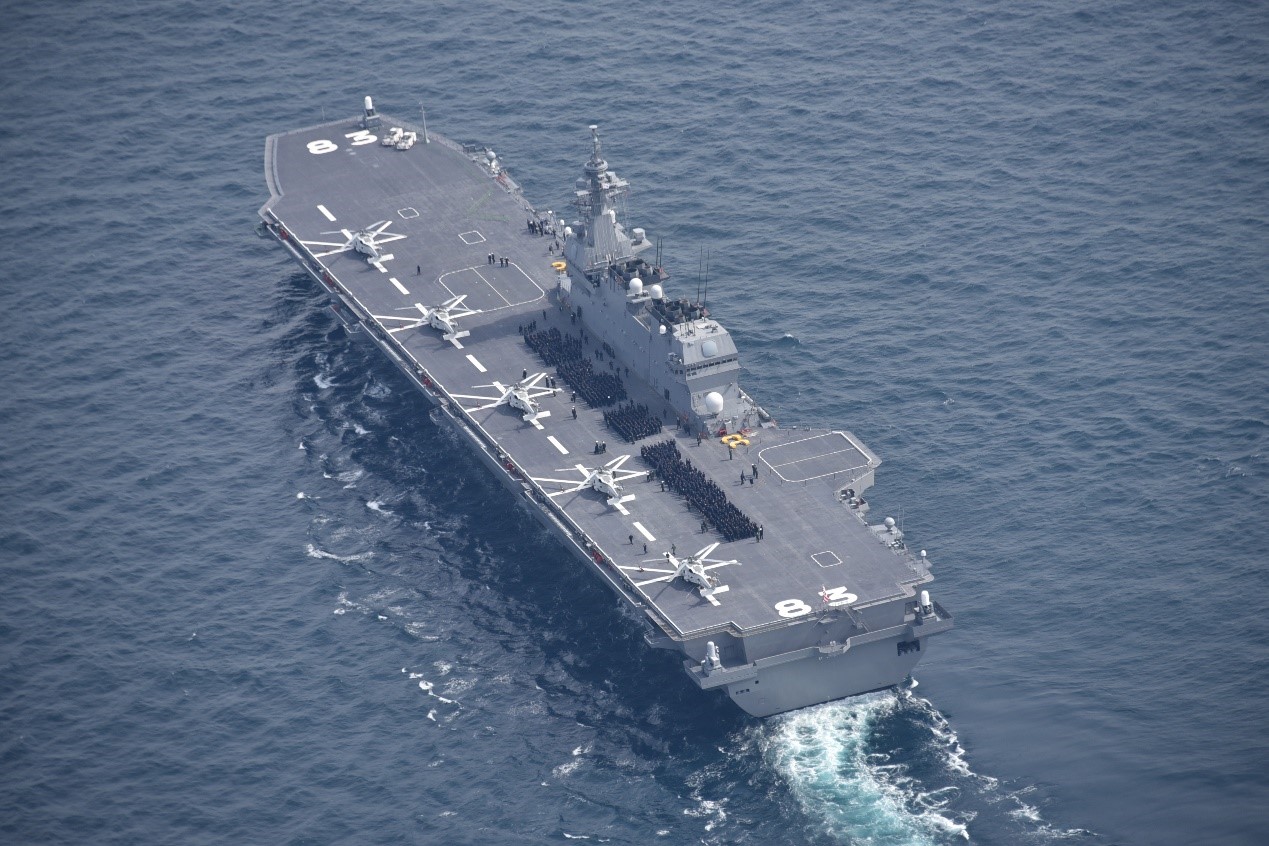The world was shocked when four Tajik jihadists carried out a mass shooting in March, killing 145 people in the Crocus City Hall music venue in Russia’s Krasnogorsk, Moscow Oblast. Picture source: Mchs.gov.ru, March 25, 2024, Wikipedia, https://upload.wikimedia.org/wikipedia/commons/5/56/Elimination_of_the_consequences_of_a_fire_in_%22Crocus_City_Hall%22_%28March_25%2C_2024%29.jpg.
Prospects & Perspectives No. 23
Is Islamic State Making a Comeback?
By Max Abrahms
Earlier that month, the U.S. Embassy in Moscow had warned American citizens abroad that “extremists have imminent plans to target large gatherings in Moscow, to include concerts.” Both the United Kingdom and Canada also issued a related warning of “imminent terrorism risk” to their citizens in Russia. Washington also privately warned Russian officials directly of an imminent attack from Islamic State Khorasan Province (IS-KP), which was ultimately credited with the attack, almost exactly as predicted.
IS never went away
The attack was also not surprising because Russia has long been in the crosshairs of Islamic State and other Islamist terrorists. In early March, just a few weeks before the Crocus City attack, Russian security forces engaged in a lethal shootout with Islamic State terrorists in Ingushetia and separately announced a foiled Islamic State operation directed against a synagogue in Moscow. Contrary to much Western reporting, Moscow has been a major Islamic State adversary since September 2015, when Russian forces began to intervene in Syria in defense of the Assad government. Two months later, Islamic State bombed Metrojet Flight 9268 en route to St. Petersburg from the Red Sea resort of Sharm el-Sheikh, killing all 224 people on board. More generally, Russia has been the victim of at least a half-dozen mass casualty terrorist attacks in the Moscow area alone by Islamist extremist over the last 25 years, such as the explosions that rocked the Moscow apartments in 1999, the Moscow theater hostage crisis in 2002, and the Domodedovo International Airport bombing in 2011, with most of these attacks carried out by Chechen terrorists.
But the bigger reason the Crocus City Hall attack was unsurprising is that Islamic State never went away. After the implosion of the caliphate in 2017, many people around the world wanted to turn the page on Islamic State. Islamic State, however, actually became more international after losing its stronghold in Iraq and Syria, with provinces or wilayats in not only Afghanistan (Khorasan), but also in Bangladesh, Egypt, Libya, the Philippines, West Africa, the Sahel, and Central Africa (Mozambique and the Democratic Republic of the Congo). Although it is often said that Islamic State “decentralized” after losing its caliphate, the Islamist terrorism expert Aaron Zelin has noted that “the group’s provinces are actually more integrated now than they were when IS controlled territory in Iraq and Syria.” As Colin Clarke of the Soufan Group points out, the Islamic State has long been very deliberately building up its provinces to ensure that defeat “is not tied” to any one location in the world. As Islamic State’s most notorious leader put it, a truly international base and theater of operations are essential for survival and “the land of god is wide.”
Global organization
The international scope of the Islamic State threat was easy to miss after the Crocus City Hall attack because so much media attention focused on the fact that it was carried out by IS-KP, which has tended to focus attacks on South-Central Asia, primarily Afghanistan and Pakistan. But not only had IS-KP committed recent mass casualty external operations in other countries, the affiliate should be understood as part of the global Islamic State organization. Unlike Al Qaeda’s parent group and affiliates, which were often at odds with each other over tactics and targets, Islamic State’s terrorists are operating on its behalf regardless of any specific province to which it may be attached. Significantly, Islamic State’s Amaq News Agency claimed responsibility for the Crocus City Hall attack via Telegram; it did not specify which of its branches was responsible because they all share the same senior leadership. Right after the Crocus City Hall attack, Islamic State spokesman Abu Hudhayfah al-Ansari praised it and then proceeded to urge sympathizers around the world to “target Christians and Jewish people, especially in the US, Europe, and Israel during the holy month of Ramadan.” The IS-KP attack in Moscow must thus be seen as a manifestation of the international Islamic State threat rather than a one-off tragedy or one confined to any particular region.
Islamic State has interest in attacking nearly every country in the world. The Dutch intelligence agency AIVD reports that 10 jihadist attacks were thwarted in Europe over the last year. This number actually seems too low. Following the Crocus City Hall attack, German Interior Minister described the Islamic State threat level as “high.” Just last week, Berlin charged seven suspected IS-KP members for attack plots while a man from east London was also convicted for sharing Islamic State propaganda. France is beefing up security precautions for the Olympics in July, as Islamic State has “publicly expressed” an interest for extremists in France to strike the high profile sporting events. Spain, too, has recently arrested a man for “intensive efforts to encourage terrorism” who has “extensive connections” with other Islamic State members in Asia, Europe and North America. Elsewhere in Europe, such as in Poland, a Tajik citizen was deported a couple weeks ago on suspicion of being a member of Islamic State. Since the Crocus City Hall attack, Turkish authorities have publicly raised concerns over dozens of citizens for suspected ties to Islamic State, seizing unlicensed shotguns and pistols in the counterterrorism operations. It turns out that the two teenagers arrested in connection with the Wakeley church stabbing in Australia had graphic videos of Islamic State beheadings, with one also possessing bomb-making instructions. According to one dataset, Israel has thwarted nine Islamic State plots in the last year. Terrorism watchers in the United States are also on edge. Shortly after the Crocus City Hall attack, the former head of U.S. Central Command warned that Islamic State has a “strong desire” to attack the U.S. and other foreign powers, and that “the threat is growing” and even “inevitable" for an attack. Indeed, a few weeks ago an 18-year-old in Idaho was arrested after pledging loyalty to the Islamic State and reportedly planning to shoot up local churches before the end of the Muslim holy month of Ramadan.
…and still growing
Other countries are contending with current Islamic State violence and not just the specter of imminent attacks. The Nigerian army has been waging fierce battles with the Islamic State, as has the Taliban since the U.S. withdrawal from Afghanistan in August 2021. Even in its original stronghold, Islamic State has been roaring back. According to U.S. Central Command, Islamic State currently has about 2,500 fighters in Syria and Iraq — more than double estimates from late January. Syria is particularly unstable, featuring frequent battles between the Syrian Arab Army and Islamic State fighters in March and April, appreciably higher than in previous months. The nonprofit Counter Extremism Project reports that the Central Syrian desert area known as Badia has not seen such violence since the insurgency ebbed in late 2017.
People seem to have forgotten about Islamic State. But Islamic State has not forgotten about them. Properly understood, the Crocus City Hall attack should be a wake-up call for those who counted Islamic State out. Its ambition and prowess appear to be rising around the world.
(Max Abrahms is associate professor of political science at Northeastern University.)

